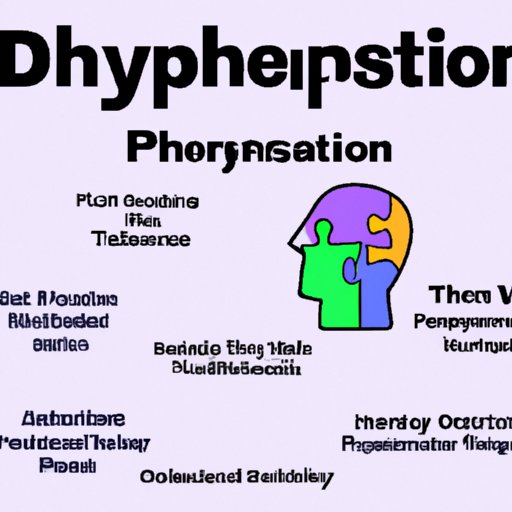Introduction
Psychiatry is a branch of medicine that focuses on the diagnosis and treatment of mental disorders. A psychiatrist is a medical doctor who specializes in diagnosing and treating mental illnesses and emotional disturbances. They provide a range of treatments, including psychotherapy, medication management, and alternative therapies.

Overview of the Role of a Psychiatrist
The primary role of a psychiatrist is to diagnose and treat mental health conditions. They use a variety of techniques, including interviews, psychological tests, and physical exams to assess patients’ mental health. Once a diagnosis is made, they develop a treatment plan tailored to the individual needs of each patient. This may include psychotherapy, medication management, and/or referral to other health care providers.

Education and Training Needed to Become a Psychiatrist
In order to become a psychiatrist, you must first complete a four-year bachelor’s degree program in a related field such as psychology or sociology. After completing your undergraduate studies, you must then attend and graduate from medical school. During medical school, you will take courses in anatomy, physiology, pharmacology, pathology, and psychiatry. Upon completion of medical school, you must complete a residency program in psychiatry, which typically lasts 4 years.
Once you have completed your residency, you must obtain certification from the American Board of Psychiatry and Neurology (ABPN). In addition, you must obtain licensure in the state in which you plan to practice. Licensure requirements vary by state, but typically include passing an exam and submitting documentation of your training and experience.
Role of a Psychiatrist in Mental Health Care
A psychiatrist plays a vital role in the mental health care system. They are responsible for diagnosing and treating mental illnesses, providing counseling services, and referring patients to other health care professionals when needed. In addition, psychiatrists work with other health care professionals, such as psychologists, social workers, and nurses, to create comprehensive treatment plans for their patients.
Psychiatrists also play an important role in prevention and early intervention. They can help identify and address potential mental health issues before they become more serious. Through regular check-ins, screenings, and assessments, psychiatrists can help ensure that their patients are receiving the best possible care.
Different Types of Treatment Approaches Used by Psychiatrists
Psychiatrists use a variety of treatment approaches to help their patients manage mental health issues. The most common type of treatment is psychotherapy, which involves talking with the patient and helping them understand their thoughts and feelings. Medication management is another common approach used by psychiatrists to treat mental illness. This involves prescribing medications to help with symptoms and side effects. Alternative therapies, such as acupuncture, yoga, and mindfulness meditation, may also be employed to help patients cope with their mental health issues.
Challenges Faced by Psychiatrists in Their Day-to-Day Practice
Working as a psychiatrist can be challenging. One of the most common challenges is dealing with insurance companies. Insurance companies often have complicated rules and regulations that can make it difficult for psychiatrists to get reimbursed for their services. Additionally, psychiatrists must cope with stressful situations, such as working with suicidal patients or those who have suffered trauma. Finally, psychiatrists must stay up-to-date on the latest research and treatments in order to provide the best care to their patients.

Important Skills Necessary for Successful Psychiatry Practice
To be successful in psychiatry, there are certain skills that are essential. It is important for psychiatrists to have excellent communication skills, both verbal and written, in order to be able to effectively communicate with their patients. Additionally, psychiatrists must have empathy and compassion in order to understand their patients’ struggles and help them cope. Finally, good time management skills are necessary in order to be able to juggle multiple patients and tasks throughout the day.
“Effective communication is an essential skill for any psychiatrist,” says Dr. Roberta Gebhard, a psychologist and professor at the University of Miami Miller School of Medicine. “It is important to be able to listen to and understand the patient’s concerns, provide feedback, and ask questions in order to gain insight into the patient’s situation.”
Conclusion
Becoming a psychiatrist is a long and demanding process that requires dedication and hard work. However, the rewards of being a psychiatrist are well worth the effort. Psychiatrists have the ability to positively impact the lives of their patients and make a lasting difference in the mental health care system.
(Note: Is this article not meeting your expectations? Do you have knowledge or insights to share? Unlock new opportunities and expand your reach by joining our authors team. Click Registration to join us and share your expertise with our readers.)
